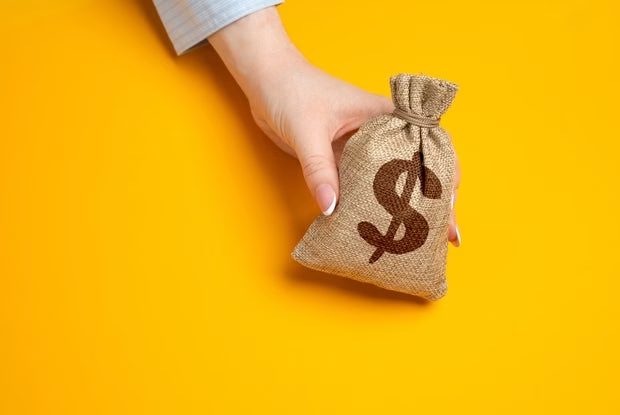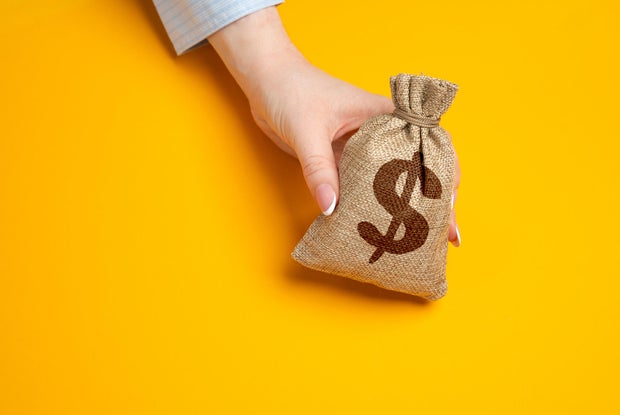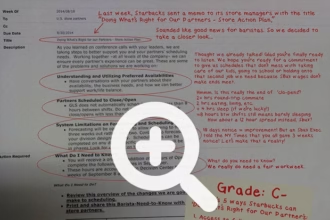Andrii Yalanskyi/Getty Images
Economic conditions are uncertain right now. Interest rates are high, and inflation has been ticking up in recent months. To top it off, the Federal Reserve is poised to cut rates for the first time this year, which could cause a major shift to occur.
With all this up in the air, it can be hard for consumers to make decisions about their money. Should you stow it safely away in a high-yield savings account? Should you invest it in stocks and hope to make a hefty profit on future market fluctuations?
The choice isn’t easy, but there are certain times when one option may outweigh the other. Here’s what experts recommend in today’s market.
Start earning more interest with the right high-yield savings account now.
Experts say to choose a high-yield savings account if…
A high-yield savings account could be the smarter option if one or more of the following applies to you:
You’re worried about affording inflation/higher prices
Inflation has increased quite a bit from earlier this year, rising from 2.3% in April to 2.7% by July. That means higher prices for consumers, and if it keeps rising, even higher prices down the line.
If you’re concerned about that, or you think you’d have trouble affording those higher prices that might come along, then putting your money in a high-yield savings account is a good way to park your cash.
“A high-yield savings account is best for emergency funds, short-term savings goals — less than three to five years, and parking cash for known upcoming expenses, such as tax bills, tuition, etc.,” says Jordan McCallum, regional sales director at Southern Ohio Retirement Group.
Just be careful because the rate you get on your account matters, particularly as inflation rises.
“An account’s yield must be compared to the inflation rate,” McCallum says. “A 5% yield with 3% inflation gives you a real return of around 2%. A negative real return — if inflation goes higher than your yield — means your purchasing power is eroding.”
Should the Fed start reducing rates (as is expected at the bank’s September meeting), that would mean lower rates and returns on savings accounts. Fortunately, the Fed tends to reduce rates by small increments, so it’s unlikely there’d be a huge drop in savings rates in the next few months.
“A high-yield savings account is a safe, fixed-rate place to park money that earns a decent return right now,” says Mike Chadwick, founder of Fiscal Wisdom Wealth Management. “The rates will go down as the Fed cuts rates, but for now, they’re fair.”
Explore your top high-yield savings account options online today.
You want to minimize your risk exposure
There’s a lot of uncertainty in the market right now, and uncertainty means risk. With stocks, that risk is big, and you could even lose the principal you invested in the stock if things go south.
With savings accounts, though, you’ll never lose what you initially deposited into your account. If rates fall, the interest you earn will shrink each month, but you’ll never outright lose money.
“High-yield savings accounts provide principal protection and predictable returns,” says Stephan Shipe, a flat-fee financial and investment advisor at Scholar Financial Advising. “Stocks carry market risk and volatility.”
This sort of guarantee not only protects you against financial losses if the market takes a turn, but it can provide much-needed peace of mind in today’s uncertain economic climate, too.
“We are navigating the aftermath of the fastest rate-hiking cycle in history, and the full impact is still unknown,” McCallum says. “Are we headed for a soft landing or a recession? In this environment, the value of safety and guaranteed returns is very high.”
You want to be able to make quick decisions with your money
Uncertainty doesn’t always mean something bad will happen. In some cases, it can mean opportunity — the chance to buy up an asset for a low price or to make some other financial move that will benefit you in the long run.
In this case, you’d want easy access to your cash, allowing you to capitalize quickly on those opportunities when they arise.
“If you need liquidity, the high-yield savings account would be the proper choice so you can act immediately,” says D’Andre Clayton, co-founder of Clayton Financial Solutions. “This approach blends a focus of having moderate time value of money and then switching to possibly huge opportunities that can happen only in a downturn.”
Having your money more liquid can also help you weather any potential storms the current economic uncertainty might bring. For example, if you’re laid off, being able to quickly dip into your savings account and pay the bills could be a lifesaver.
“The money is available instantly with no penalty or market risk,” McCallum says. “Stocks are also liquid — you can sell them in seconds, but liquidity does not mean stability. If you need cash tomorrow and the market is down 20%, you are then forced to sell at a loss.”
Experts say to choose the stock market if…
You may want to consider the stock market instead if one or more of the following applies:
You want the chance at big returns
Savings accounts are the safest bet and can ensure you get some sort of return on your cash. But if you want a shot at potentially big earnings, stocks typically offer a better opportunity.
“A stock is a growth engine,” McCallum says. “Its job is to build wealth.”
Since its inception, the S&P 500 has seen average returns of about 10% annually. That’s more than double what even the best high-yield savings accounts are offering these days (around 4 to 5%).
“Stocks historically offer better inflation-adjusted returns despite their short-term volatility,” Shipe says.
You’re planning for a long-term goal (and can ride some waves)
If you’re not looking to make a quick buck but instead save for a far-off goal or retirement, then stocks are probably the better option for beefing up your money.
“History shows that a well-diversified stock portfolio has the highest potential for growth,” McCallum says. “However, high returns come with high volatility and the risk of loss, especially in the short term.”
That means there’s a chance you lose your investment. More than that, though, it means you’ll need to be willing to ride some market swings along the way. And those swings? They could be coming soon, experts say.
“The S&P 500 is trading above 22 times forward earnings — that’s like paying a luxury price tag for a middle-class paycheck,” Clayton says. “It doesn’t mean stocks can’t climb higher, but it does mean the market is already baking in a lot of perfection, leaving little margin for error. Rising trade tensions, stubborn inflation, and shifting Fed policies could all act like crosswinds, making it harder for markets to stay on course.”
Consider alternatives, too
High-yield savings accounts and stocks aren’t the only options you have if you’re looking to make some money off your cash. In today’s climate, certificates of deposit (CDs) can also be a viable option, allowing you to earn solid interest on cash you can leave untouched for a period of time.
“Depending on your goals, a CD could be a better option than a high-yield savings account or stocks,” says Laura Sterling, vice president of marketing at Georgia’s Own Credit Union. “While there is typically a penalty for early withdrawal, you can invest in a short-or long-term CD and get a guaranteed return on your savings. Rates on a CD can often be higher than a high-yield savings account.”
CDs can be particularly beneficial if the Fed does follow through on rate cuts, as they let you lock in today’s higher CD rates, often for many years.
“CDs work best when you want to lock in current rates for a specific time period and don’t need liquidity,” Shipe says. “They’re ideal for intermediate-term goals — one to five years — where you want guaranteed returns higher than high-yield savings accounts but don’t want stock market risk.”
The bottom line
In the end, the right choice comes down to your goals, risk tolerance, and time horizon. If you’re looking for safety, liquidity, and steady—if modest—returns, a high-yield savings account or CD may give you peace of mind and protect your purchasing power. On the other hand, if you can stomach short-term volatility in exchange for the potential of long-term growth, stocks could still be the better path forward.
No matter which route you choose, keep an eye on the Fed’s next moves and the broader economic picture. Shifts in interest rates, inflation, and market conditions can quickly change the calculus, so revisit your strategy often and make sure your money is working in a way that aligns with both your needs today and your plans for tomorrow.










